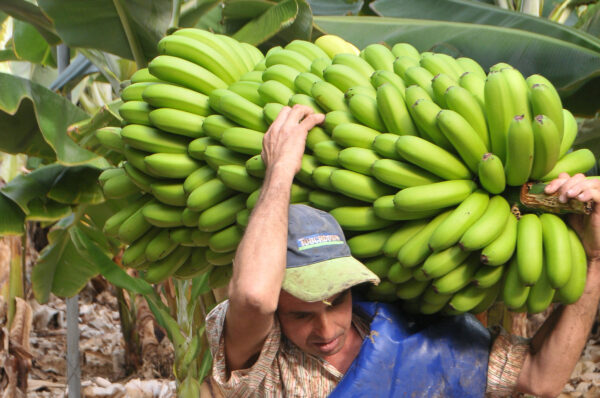This website uses cookies so that we can provide you with the best user experience possible. Cookie information is stored in your browser and performs functions such as recognising you when you return to our website and helping our team to understand which sections of the website you find most interesting and useful.

Most of the food we buy in the supermarket is contaminated with human rights abuses and environmental destruction. Yet, these tasteless ingredients often remain invisible to us. You can help change this.
Binding regulations are key to guaranteeing decent working conditions and to ensure environmental and climate protection: they can make companies responsible and hold them accountable for the harm they are causing along their supply chains.
Now it’s up to us: tell Commissioners Reynders and Breton, and to Vice President Jourová that we must protect human rights and the environment with strong due diligence legislation. No more delays.
Join the action by Our Food, Our Future and supported by ECCJ:
The journey of our food from field through processing to the supermarket is long. Multinationals are using complex supply chains, with multiple subcontractors that can be difficult to trace, to dilute their responsibilities.
The negative consequences of these business practices are often most deeply felt at the beginning of the supply chain, where workers – especially women and migrants – are too often exploited and not provided with decent working conditions. They are often unable to adequately feed themselves and their families, they have insecure legal status or face discrimination.
All of this happens so that big corporations and supermarket chains can produce food even faster, bigger and cheaper.
A strong EU regulation would harmonise laws across EU member states and create a level playing field for all actors, in which the protection of human rights and the environment is mandatory.
The process to draft this European regulation started in April 2020. In February 2021, over half a million people demanded a strong EU law to hold corporations accountable. These demands were made as part of the public consultation launched by the European Commission to get the input of citizens and organisations on the legislation. A month later, the European Parliament adopted a report supporting ambitious and strong due diligence standards.
A recent YouGov poll revealed that over 80 percent of citizens from across multiple EU countries want strong laws to hold companies liable for overseas human rights and environmental violations. Europeans from nine EU countries including Spain, Germany, Belgium and Slovenia agreed that people affected by such corporate driven abuses must be allowed to take the companies responsible to court in Europe.
It is now up to Commissioners Didier Reynders (Justice) and Thierry Breton (Internal Market) to draft a proposal for a robust and comprehensive directive. The voice of Vice President of the European Commission for Values and Transparency, Věra Jourová, will also carry extraordinary weight here.
Victims currently face countless legal and procedural barriers in transnational cases against corporations. Recently, the United States Supreme Court ruled against victims of alleged child labour in the cocoa industry on procedural and jurisdictional grounds. An EU corporate due diligence law with explicit provisions enabling access to justice like civil liability to address similar barriers to justice in the EU.
EU legislation should also acknowledge the existence of vulnerable groups requiring special protection. These provisions will allow victims who have suffered human rights abuses to seek remedy and be compensated.
While the EU has already taken legislative action to address unfair trading practices in agricultural and global food supply chains, this initiative should be expanded to include unfair purchasing practices in other sectors in order to compliment the corporate duty to undertake human rights and environmental due diligence.
The time is ripe for justice.
Find out more about how to build pressure on the Our Food, Our Future website.
Follow the campaign on Facebook and Instagram.
Photo by Joshua Rawson-Harris on Unsplash












